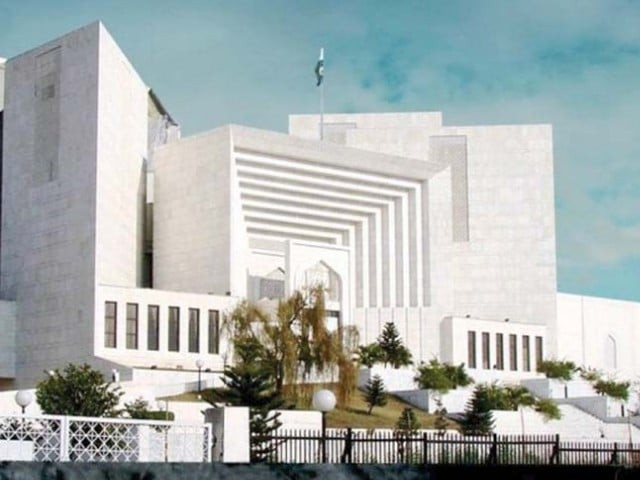Disqualification span unclear while polls near
Lawyers say courts, parliamentarians should settle whether penalty is time-specific

PHOTO: FILE
The top court disqualified former prime minister Nawaz Sharif and Pakistan Tehreek-e-Insaf general secretary Jahangir Tareen under Article 62(1)(f) for non-disclosure of their assets in nomination papers. However, it is unclear whether the disqualification will be effective for life or a limited period.
Article 62(1)(f) of the Constitution states, “A person shall not be qualified to be elected or chosen as a member of Majlis-e-Shoora (Parliament) unless he is sagacious, righteous and non-profligate and honest and Ameen.”
A section of lawyers is even raising questions over the court having disqualified both the leaders under Article 62(1)(f) for the offence of mis-declaration in their nomination papers. They believe that the accused should have only been de-seated under The Representation of People Act (Ropa), 1976 under for offence of concealment of assets.
A three-judge bench, headed by Chief Justice of Pakistan Mian Saqib Nisar, on Friday completely endorsed the Panamagate judgment against Sharif by disqualifying Tareen on the same principle.
SC sets guidelines for challenges to MPs’ qualification
Some lawyers suggest that it is the best time for judges as well as parliamentarians to settle whether the disqualification under Article 62(1)(f) is time-specific. Presently, former chief justice Iftikhar Muhammad Chaudhry’s judgments are in field, which held that disqualification under the article was for life. However, some earlier verdicts did not envisage permanent disqualification.
Former Supreme Court Bar Association chief Rashid A Razvi referred to a 1994 larger bench judgment, saying the SC had declared that no one was permanently ‘Sadiq and Ameen’ (truthful and honest).
A person convicted in a criminal case would be barred for five years after imprisonment; one convicted under the NAB Ordinance is disqualified for 10 years after his release and in a contempt case an individual would be disqualified for five years, he said. However, it is very interesting that the person giving a false statement before the court or concealing his asset details in nomination papers would be disqualified for the rest of his life, he said.
A larger bench is reported to be adjudicating the same matter in the case of former Pakistan Muslim League-Nawaz MNA Sumaira Malik.
Pakistan Bar Council Executive Committee member Azam Nazeer Tarar says the incumbent chief justice has in his earlier judgments declared that lifelong disqualification of an MNA is not entailed under the article. Some lawyers wonder that the SC under appellant jurisdiction de-seats an MNA for concealment of assets but disqualifies the person for life on the same charge under quo warranto jurisdiction used under Article 184(3) of the Constitution.
Legal experts say it’s also a good time for Parliament to end this ambiguity by making a constitutional amendment for setting the duration of disqualification under Article 62(1)(f) that also saw dozens of parliamentarians disqualified during Justice Chaudhry’s tenure.
Full text of Supreme Court verdict on Tareen's disqualification
The Tareen case judgment noted that if a person violated any law, especially a fiscal law, and made a mis-declaration or concealment to evade his tax liability or committed the violation of any other law for which conviction and penalty of imprisonment or fine were provided, action should be taken against him in accordance with the provisions of that law, by the forum created and having jurisdiction thereunder.
“It is also the foundational principle of jurisprudence that where a law requires an act to be done in a particular manner, it has to be done accordingly. Therefore, when a person is alleged (and not proven) to have violated some law in the past and is elected subsequently as a member of Parliament, he cannot be held to be dishonest under Article 62(1)(f) in quo warranto proceeding. However, if during the term of his office a member of Parliament is declared by a forum of competent jurisdiction having incurred a disqualification envisaged by the Article, he can be removed from the office by the superior courts in the exercise of their quo warranto jurisdiction,” it said.

1724319076-0/Untitled-design-(5)1724319076-0-208x130.webp)

















COMMENTS
Comments are moderated and generally will be posted if they are on-topic and not abusive.
For more information, please see our Comments FAQ